Lucas Smith, a 42-year-old father of three, is an analytical chemist by profession and a biochemist by education.
The University of Michigan graduate is a third-degree Master Mason, Mensa member, former boxer and an avid traveler who’s visited 46 states and 30 countries.
He’s also a rehabilitation success story.
‘I knew it wasn’t good’
Life as Lucas knew it ground to a halt Feb. 6, 2021, when he experienced an aortic dissection. An aortic aneurysm had ruptured, requiring replacement of a stretch of the artery.
Everything was fine that day, until it wasn’t.
Lucas had difficulty grasping and couldn’t hold anything. His vision turned hazy. He had a slight headache. Most startling for him, it became difficult to think.
“Being I’m a cerebral guy, that was a little bit scary,” he said. “I wasn’t entirely sure what was happening, but I knew it wasn’t good.”
Lucas called his wife, Katrina, who took him to a local hospital. Once doctors diagnosed his condition, they swiftly sent him to Spectrum Health Butterworth Hospital, where the health care team rushed him directly from the ambulance to the surgical suite.
Doctors gave him a 50-50 chance of surviving surgery.
He underwent three surgeries within roughly 12 hours. Then came a cascade of strokes.
As his situation grew more dire, doctors placed him in a medically induced coma.
Lucas has random memories from before undergoing surgery.
“Flashes, mostly,” he said.
Next thing he knew, he awoke in intensive care. His brother, Jake, and Katrina explained what happened.
A week had passed.
The entire time he’d been under, Lucas had extremely vivid dreams.
“When I came out of the coma, I had a hard time deciding what was real and what was dreamt,” Lucas said. “To me, there was no difference. I hallucinated for several days. I would see people in my room who weren’t really there and have entire conversations with them. It was interesting and scary.”
Learning of his strokes, Lucas wondered if he’d lost much mental capability.
“I have no marketable skills outside of my brain usage,” he said. “I can’t fix a car. I can’t weld. Math, chemistry and physics are what I know.”
A speech therapist performed a cognitive assessment. Lucas couldn’t do basic subtraction.
“That was very scary,” Lucas said. “If I’m not an analytical chemist, I don’t know what I am.”
A persona challenge
Lucas pondered work—he’d always been the breadwinner—and being a Mensan, where games, strategies and math are involved.
“I have not been unemployed a day in my life since graduating college,” he said. “I was always strong. I’m 6’3”, 280 pounds. I’m a big guy with a boxing background—the proverbial pillar of strength for the family.
“Going from that to the possibility of being in a wheelchair, there’s a persona challenge there. The potential for changing all that you are or have been.”
What if he no longer could be a chemist? He’d gone from high capability and function to lacking simple math skills.
Though frightening, this proved temporary.
“I can’t tell you I would pass the Mensa exams again, but I feel 100% when it comes to everything cerebral,” Lucas said.
After two weeks in intensive care at Butterworth Hospital, the health care team transferred Lucas to another unit for two weeks to continue healing.
Once stable and with a normal heart rhythm, he moved to the Spectrum Health Inpatient Rehabilitation Center at Blodgett Hospital.
His brother and wife were by his side daily, motivating him and raising his spirits. His sister-in-law Wendy Smith, RN, would occasionally stop to have lunch with him when working at Blodgett Hospital.
“It was critical to my improvement,” Lucas said.
When renewed COVID-19 restrictions limited visitors to one, Katrina balanced raising three children with her career and with seeing Lucas.
“She is an amazing woman,” he said.
Lucas had therapy three hours a day and returned remotely to work half time, engaging his mind and keeping him busy. He credits his employer, Teledyne, with minimizing his stress by being flexible and delegating his responsibilities. “Teledyne has been just fantastic,” Lucas said.
Patrick Mullan, DO, a Spectrum Health physician specializing in physical medicine and rehabilitation, enjoyed seeing Lucas make improvements daily at the Rehabilitation Center.
“He made so much progress with the work he put into therapy. He always had a positive attitude that was infectious,” Dr. Mullan said.
“He was constantly meeting new recovery milestones,” he added. “The nurses, therapists, providers, case managers and other staff were all happy to see him make steady, significant improvements in his function, so he could get home to his family and life.”
A powerful moment
Led by nursing staff, therapists and others, activities at the rehabilitation center became a lifechanging experience for Lucas.
He works primarily with physical therapist Chris Mueller and occupational therapist assistant Jenn Burgess.
“They’re brilliant,” Lucas said. “They’ve pushed me hard to make progress and continue to achieve.”
Hitting milestones at the rehabilitation center is humbling. Many seemed small to Lucas, who’s grown by leaps and bounds—standing with a support apparatus, standing unaided, walking assisted by only a walker.
“Jenn and Chris have been more than therapists and friends,” Lucas said. “They’ve been cheerleaders and support pillars.”
Starting out, Burgess and Lucas had to learn how to move with each other.
“We joke now how it’s like synchronized swimming,” Burgess said. “He’s come so far. The first time he walked with Chris, I felt like a mother hen and started clapping. It was a powerful moment.
“He brings joy to the entire unit. He tells people how wonderful they are, whether environmental service or the people who bring him his lunch, every nurse—if he’s met them once, he remembers their name.
“He has such a fire inside of him to get home, be with his family, get back to his old self. I adore him so much.”
No place like home
Before Lucas’ early May release, Jake and Katrina underwent caregiver training to help him once he came home.
“They’ll take me to appointments and be there for me, day by day,” Lucas said. “I love them both very much.”
He also loves Isabella, Luca and Mia—12, 10 and 6—who’d only seen their father on FaceTime.
While hospitalized, he tried to read a bedtime story to Mia a couple of times a week and help Luca with his math. Isabella, he mused, didn’t need him as much as she used to.
“I wish she did. She’s sharp. She’s smarter than I was at the same age. And well-traveled. She’s been to more countries than most adults. She’s my travel buddy.”
Lucas is thrilled to hug his children again.
“The most I’ve ever been without seeing them was a week, when I’ve been traveling,” he said. “Now, it’s been three months, which is incredible.”
Lucas returned home to read to Mia in person, play video games with Luca and catch up on Isabella’s life.
“I felt a little out of touch being not there for the day to day, and I missed that. I want to be immersed in that.”
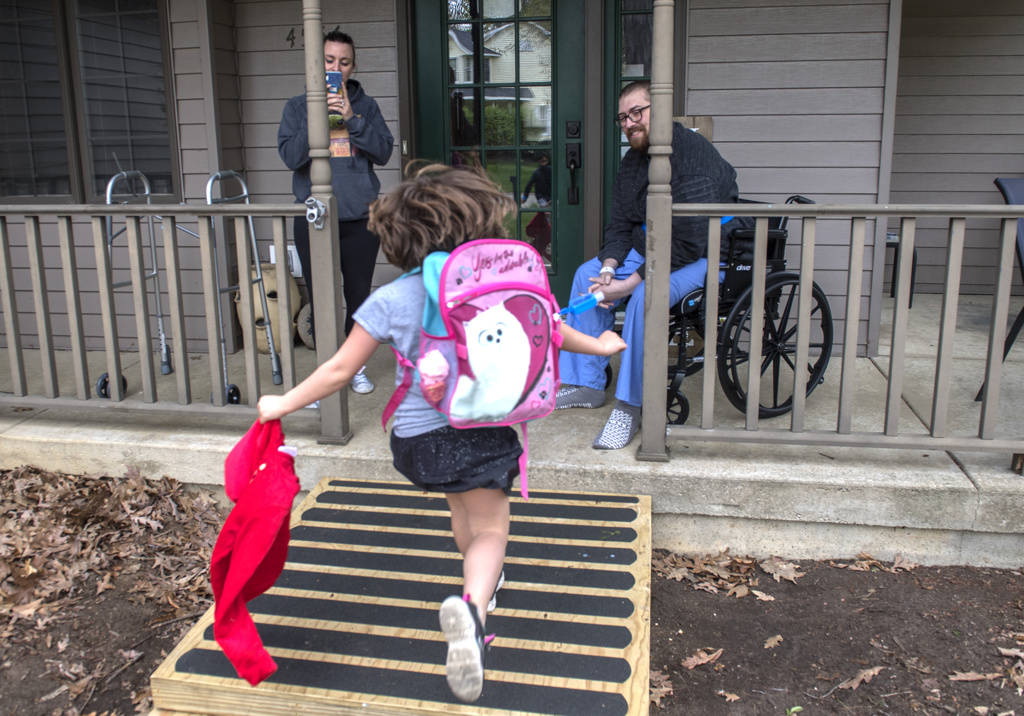
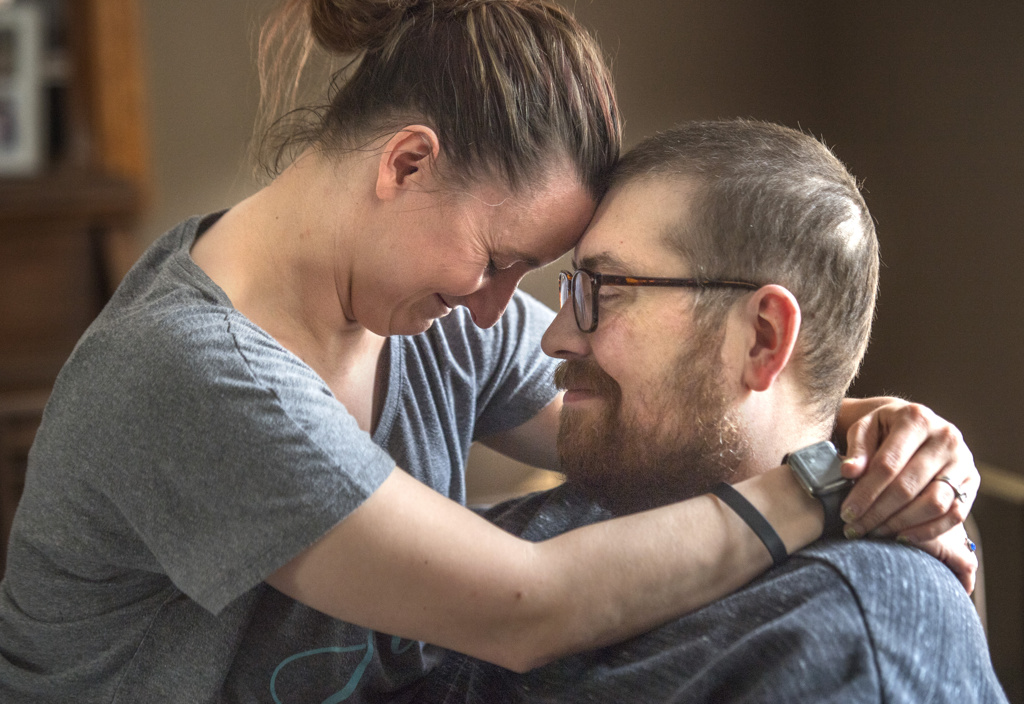

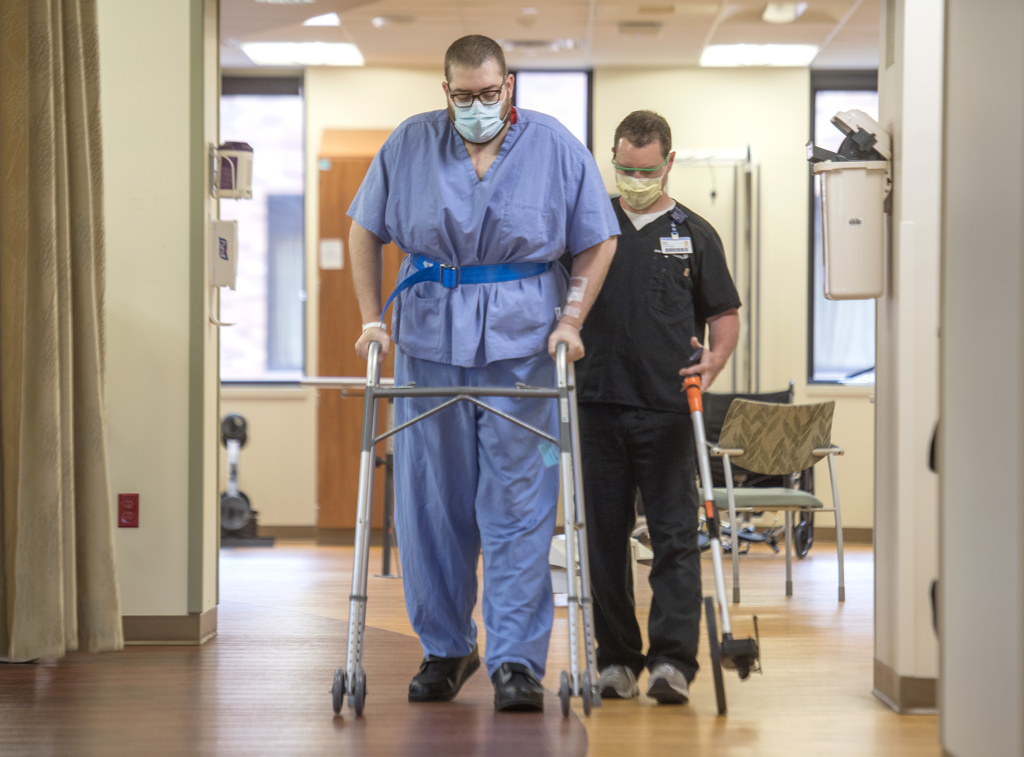
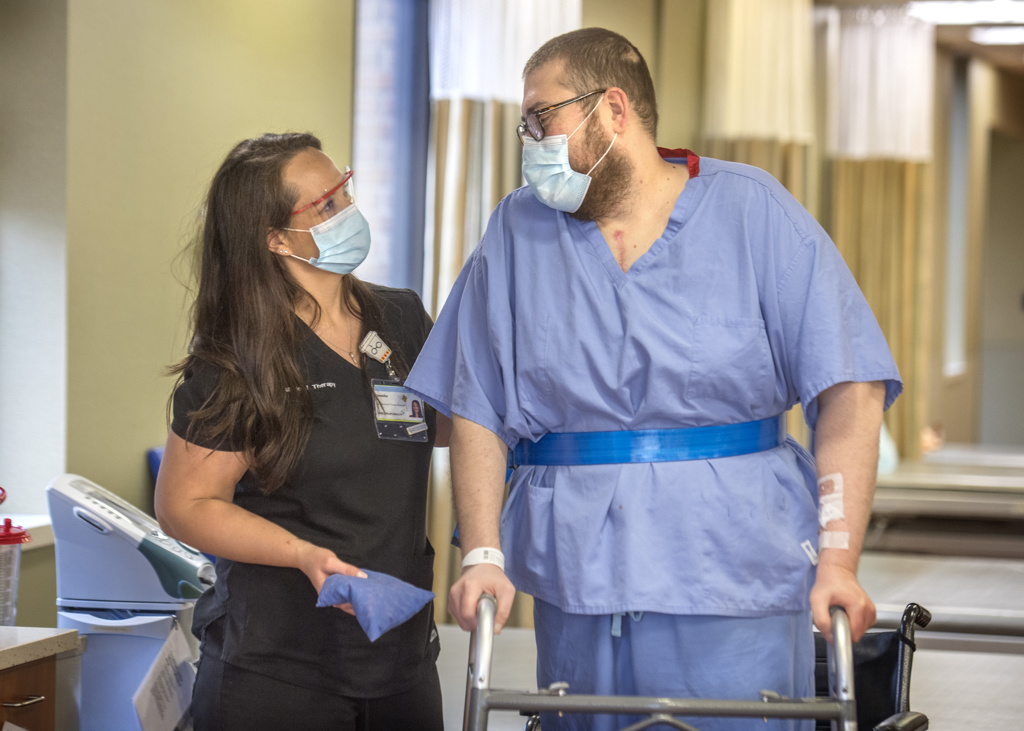
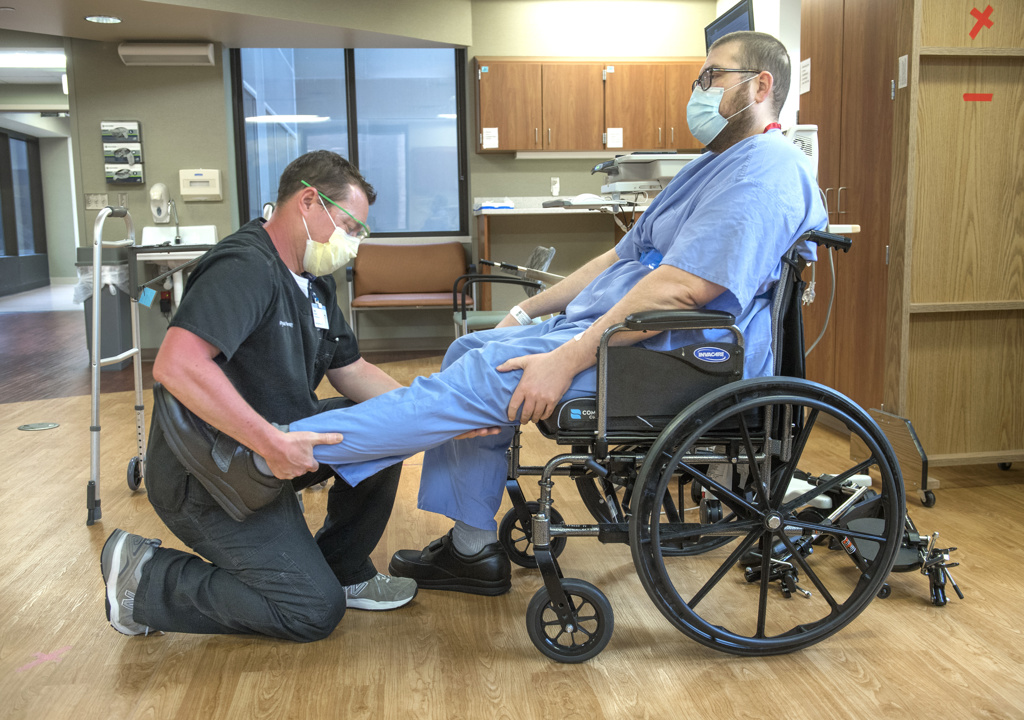
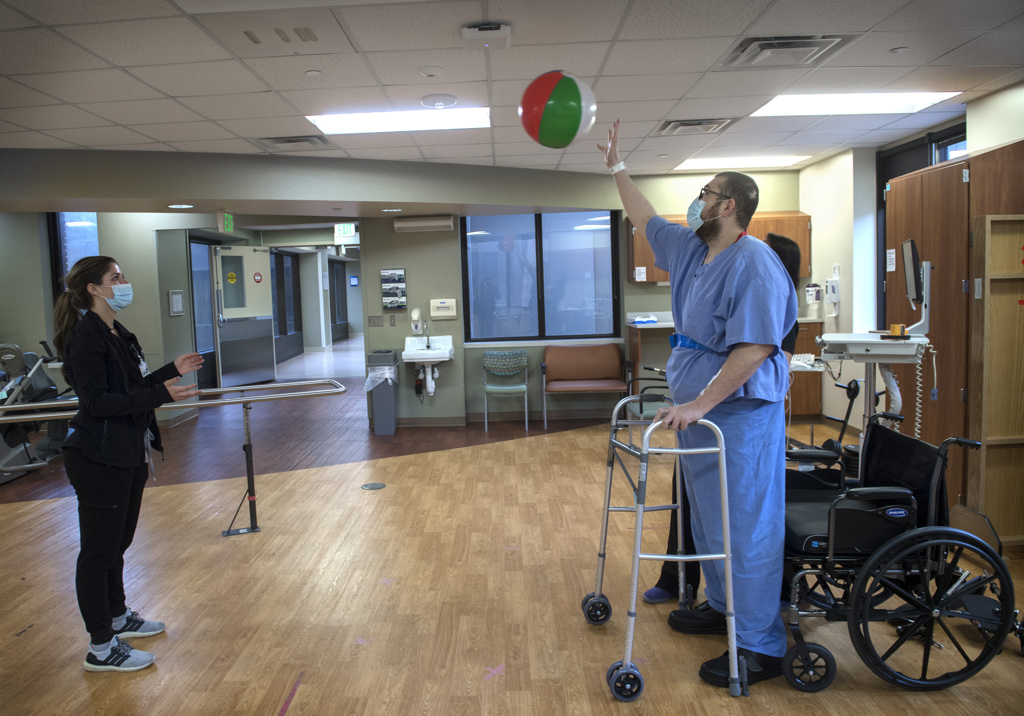
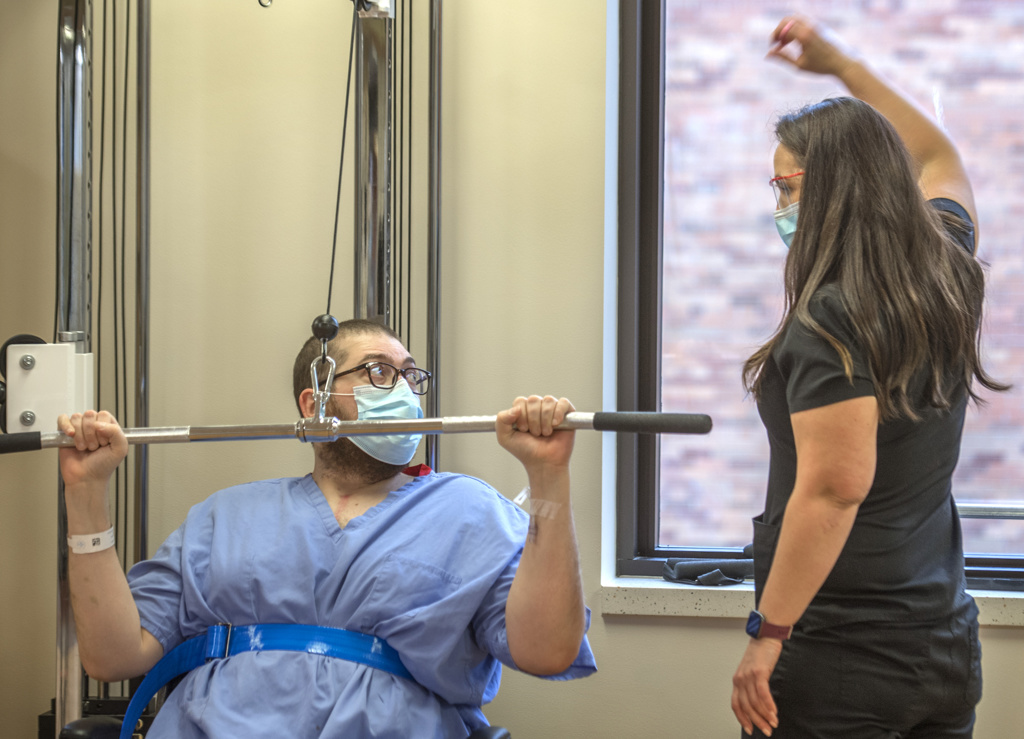
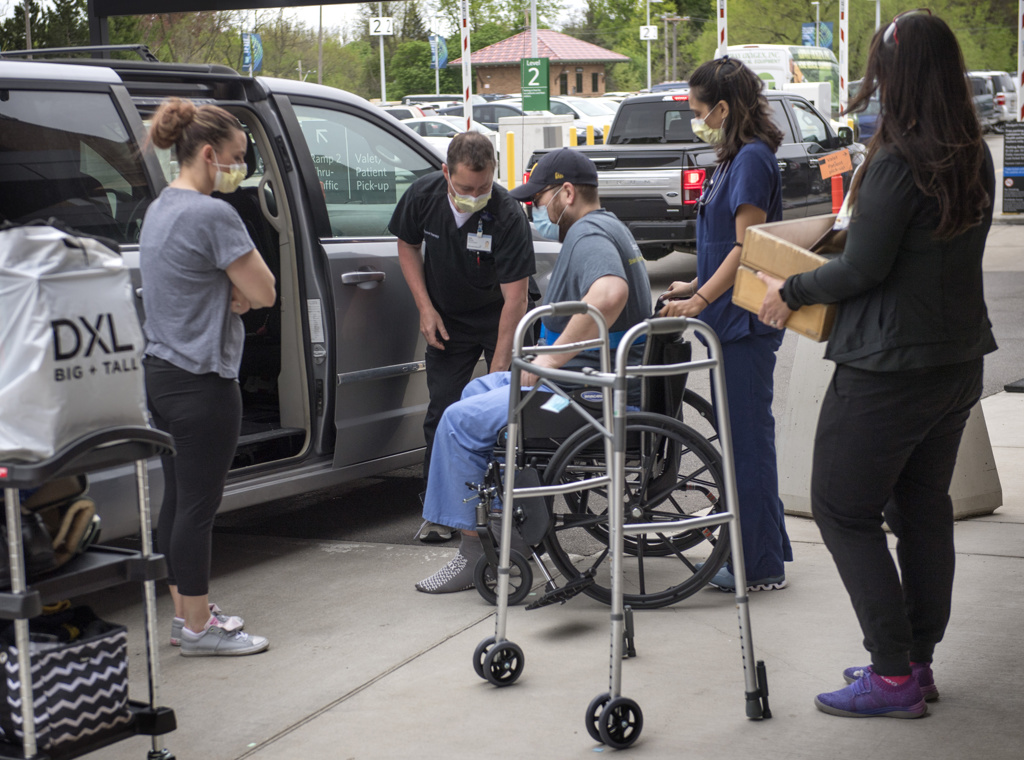



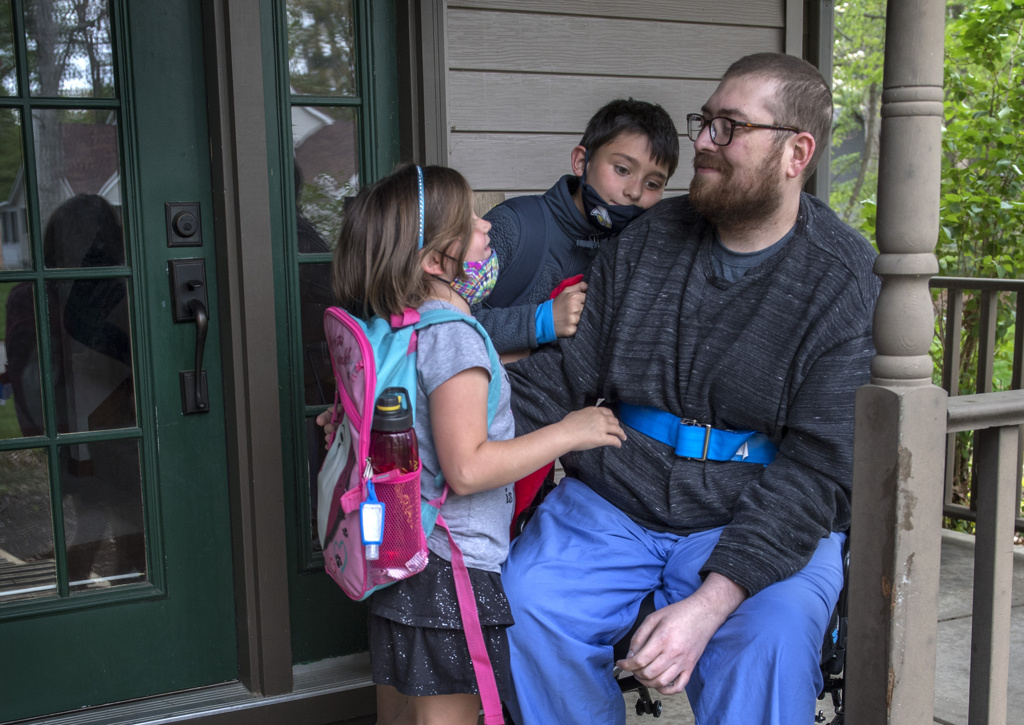

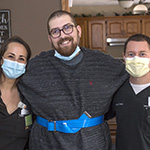
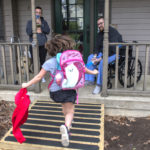
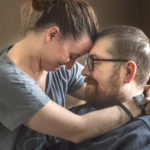
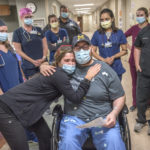
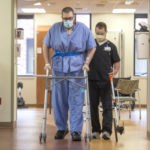
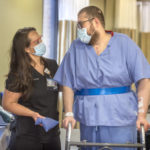
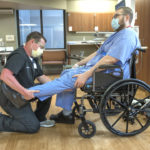








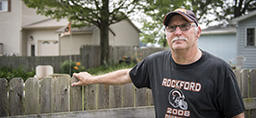 /a>
/a>
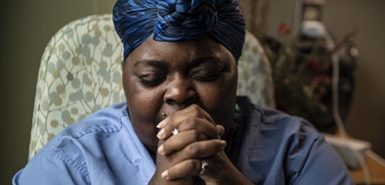 /a>
/a>
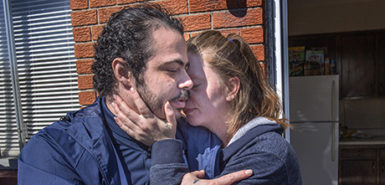 /a>
/a>
Amazing story. We have a friend in Az. Who had been a professor of Aeronautical engineering at the Air Force Academy. Now retired , 80’s and living in Az., About 10 yrs.ago he was driving when he had an aortic dissection and called 911, giving them his co-ordinates. He had 7 hr. Surgery and long rehab. Today is playing bridge, golfing .